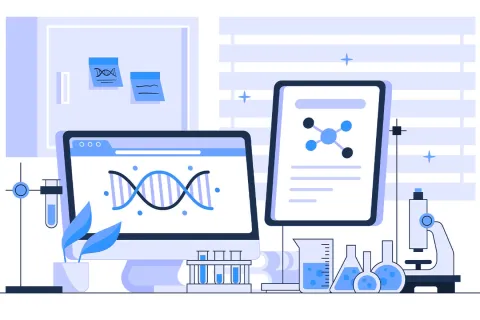
Clinical and nonclinical research programs demand the development of high-quality documents for timely submissions and approval of the drug product from Regulatory authorities. Medical writing plays a crucial role in drafting all the necessary documents right from drug development through submission and approval. When filing Investigational New Drug (IND)/ New Drug Applications (NDA) to the USFDA, medical writers are obliged to develop high-quality documents by collating all nonclinical, clinical and scientific data in a standard, comprehensive, and logical manner for Agency’s review.
In such scenarios, drafting all the data accurately in agreement with scientific requirements and as per the eCTD (Electronic Common Technical Document) specifications is challenging. Documents failing to meet the permitted eCTD structure may need last-minute changes facing timeline risks, and in worst conditions may lead to technical rejections by the Agency.
The Role of Medical Writers in IND/NDA Submissions
As with any eCTD submission, IND/NDA submissions also have five different modules which span across:
- Module 1: Region-Specific Administrative Information (not technically part of the CTD)
- Module 2: Manufacturing, Nonclinical, and Clinical Overviews and Summaries
- Module 3: Detailed Manufacturing Information
- Module 4: Nonclinical Study Reports
- Module 5: Clinical Study Reports
Of the five eCTD modules, medical writers should be well-versed with the breadth and depths of the following in an IND/NDA submission:
- eCTD Module 2.4 - Nonclinical Overview (Pharmacology, Pharmacokinetics and Toxicology)
- eCTD Module 2.5 - Clinical Overview (Clinical Pharmacology, Efficacy and Safety)
- eCTD Module 2.6 - Nonclinical written and tabulated summaries (Pharmacology, Pharmacokinetics and Toxicology)
- eCTD Module 2.7 - Clinical summaries (Summary of Clinical Efficacy and Summary of Clinical Safety)
- eCTD Module 4 - Nonclinical study reports (Pharmacology, Pharmacokinetics, Toxicology etc.)
- eCTD Module 5 - Clinical study reports (Bioavailability and Bioequivalence, Clinical Efficacy and Clinical Safety)
Modules 2, 4 and 5 require inclusive, efficient, and accurate reflection of the information within a defined framework. The amount and volume of information would, at times, be very complex, huge; and challenges the whole IND/NDA submission process. The information should be consistent and comprehensive for review and approval by the Agency. This requires clear-cut analysis and meticulous documentation capabilities.
The accuracy of scientific information plays a key role in the submission process. If medical writing is not contracted to professionals, Sponsors may tend to spend a lot of time in writing, compilation, technical review, etc. Though the product knowledge is crucial for medical writing, it alone may not suffice for requirements. The medical writers should be well-versed with region-specific Regulatory guidelines. In addition, the medical writers should possess specialized skill set for gap analysis, in-depth scientific understanding, capability to handle complex data and multiple stake holders. In such scenarios, the best option for sponsors going for IND/NDA submissions is to opt for a proven Regulatory medical writing service provider.
Stay informed. Stay compliant.









